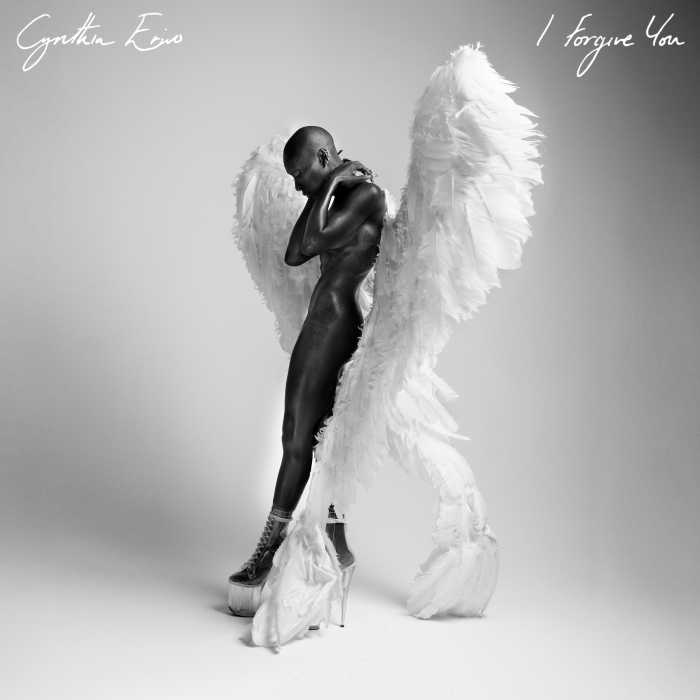Gay City News’ first music roundup of the new year reviews the latest albums by the band Sleater-Kinney, whose singer/guitarists Carrie Brownstein and Corin Tucker are bi, and bi R&B/ pop singer Kali Uchis.
Kali Uchis | “Orquideas” | Geffen | Jan. 12th
So what if it’s January? The weather is always warm when “Orquideas” is playing. Colombian-American singer Uchis sets the tone by laughing at its very beginning. The singer, most famous for her hits “Moonlight” and “telepatia,” has created a consistently pleasurable Latin pop album. She’s always been extremely well-connected, as her collaborations with Snoop Dogg, Miguel, Daniel Caesar, Gorillaz, SZA and queer rapper Tyler, the Creator attest. The guest list on Kali Uchis’ second Spanish-language album showcases its scope: reggaetón (Karol G, Rauw Alejandro), dembow (El Alfa), American hip-hop (City Girls rapper JT), regional Mexican music (Peso Pluma). Still, despite the ever-changing rhythms and genres, the album retains much the same mood.

Uchis’ voice can go from an ASMR coo to a smoky rasp. “Te Mata” pays homage to the jazz vocal tradition. Despite her skill as a singer, her vocals are never ostentatious. The flamenco-influenced guitar on “Labios Mordidos” makes a fine backdrop for Uchis’ duet with Karol G. She’s not shy about singing about her attraction to women: “just with my gaze, she got wet//Your girlfriend goes a little crazy when I arrive.” “Diosa” celebrates herself as a goddess, but other songs explore the knottier side of desire. In “Te Mata,” she comes to the realization that she owes nothing to a former lover, no matter how heartbroken they feel. “Muñekita” is the album’s most challenging song. It picks up the pace, with El Alfa’s harsh voice contrasting with Uchis. Then, it plays games with the tempo, speeding up and slowing down again during his verse and continuing to do the same throughout.
The video for “Labios Mordidos” ends on the image of Uchis and Karol G as action movie heroines, walking away as a car explodes in the distance after attending an all-female party dripping with sexual tension, but the album carries itself with quiet confidence. As much as possible, it’s careful not to break a sweat. “Pensiamentos Intrusivos” makes obsessive devotion sound blissful. While some instrumentation is overly synthetic, like the horns on “Dame Beso Muevete,” the album integrates acoustic guitar and accordion with electronic sounds. It refuses to settle on a single vibe. A far more enjoyable version of the party albums that Janelle Monae’s “The Art of Pleasure” and FKA Twigs’ “Caprisongs” strived to be, it’s an antidote for anxiety.
Sleater-Kinney | “Little Rope” | Loma Vista | Jan. 19th
Although Sleater-Kinney are indie rock legends, they’ve continued changing after their 2014 reunion. (“Little Rope” is their fourth album since getting back together.) The departure of drummer Janet Weiss marked a new era for the band, introduced by their divisive album “The Center Cannot Hold.” Still, the band refuses to settle for easy nostalgia and a path forward as a nostalgia act. Now reduced to a duo, “Little Rope” shows a continuing vitality.
In 2022, Carrie Brownstein’s mother and stepfather were killed in a car accident. Tucker, listed as her emergency contact, received the news of their deaths. The band’s grief hovers over the album like a thick fog of cigarette smoke. No wonder “Hell” is the opening track. Several songs follow a soft verse-loud chorus pattern, but John Congleton’s production is both glossy and dirty. The album booms out of your speakers, but it contains a large degree of fuzz, fleshed out by sparing keyboards.
“Say It Like You Mean It” is one of the band’s most pop-oriented songs ever, but its verses are a monotone drone, punctured by touring drummer Angie Boylan’s woodblocks. The music video, shot in black and white, is open to interpretation, but it depicts a sad scenario. A middle-aged woman, played by actor J. Smith-Cameron, lip-syncs the song while hanging around a bar. Yet the fact that she’s ignored by its patrons — even when she grasps a man’s hands while he talks with friends — suggests she may be a ghost. Whoever she may be, her feelings are not taken seriously by the outside world. This gives the chorus “say it like you mean it/’cause goodbye hurts when you go” an added twist. “Crusader,” addressed to the conservatives busy banning pro-LGBTQ books and taking control over pregnant people’s bodies, is the album’s sole explicitly political song.
Without a bassist, Sleater-Kinney have used each guitarist’s parts rhythmically, while Weiss’ drumming defined their sound for years. On “Little Rope,” the guitars are even more carefully interwoven, sometimes so processed they sound like electronic samples. Frequently, Tucker plays a few repeated notes over Brownstein’s low-end chords. Boylan reaches for maracas, woodblocks and tambourines to inject an extra dose of energy. Still, the mix is utterly devoid of warmth, constructing an emotional barricade. “Little Rope” is a powerful album, but not Sleater-Kinney’s most inviting one. It’s a wall of sound devised to keep sadness from penetrating. The moments when this façade breaks are heartbreaking.



































